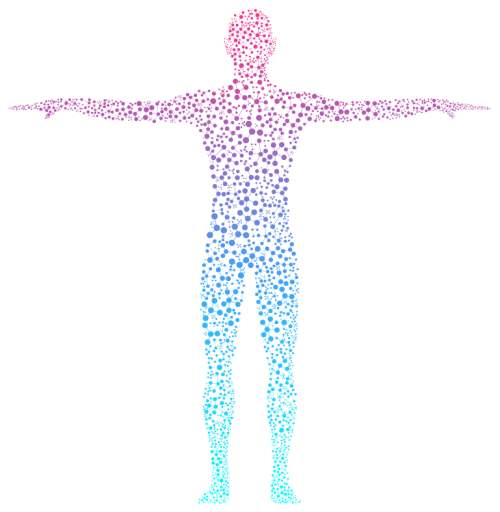
Interoception is the ability to sense the internal state of the body (e.g., physiological signals from the heart, stomach, lungs and so on). Interoception is considered key for several high-order cognitive processes. Research on interception in individuals with ASD offers mixed findings. In this research project, Prof. David Williams examines interoceptive accuracy in adults and children with and without ASD. The findings have important implications for educators, caregivers and research.
More information about the Kent author here
Find the full paper here
About
Autism spectrum disorder (ASD) is a developmental disorder characterised by a diminished ability to attribute mental states to others in order to explain and predict their behaviour (theory of mind abilities). Recent findings have linked interoception (the senes of understanding the internal state of the body-e.g., feeling hungry) with theory of mind and self-regulation. Accordingly, it has been argued that difficulties with self-other processing in ASD may be the result of an underlying impairment in interoceptive awareness. Specifically, it is suggested that difficulties in interpreting one’s own internal bodily signals early on may interfere with learning about the association between these low-level bodily signals and other higher-level feelings and thoughts. This then restricts the comprehension of oneself, which in turn would have similar effects on understanding others.
However, studies of interoception in ASD offer mixed results. Some have found differences in interoception between typically developing individuals and individuals with ASD, while others have not. Some concerns lie in tasks used to assess interoception: specifically that participants could compensate their performance with other strategies such as counting silently). The present research aimed to address these concerns and examine interoceptive accuracy in adults and children with and without ASD.
Research Objectives
Present research measured cardiac interoception, as well as respiratory interoceptive accuracy to test whether adults and children with ASD show interoceptive impairments. The researchers included control tasks designed to assess the extent to which alternative, compensatory strategies might be used by individuals with ASD to succeed on the two interoception tasks. They also administered measures of mindreading, depression and anxiety to allow full characterisation of the sample and for the exploration of underlying cognitive/personality correlates of interoceptive accuracy. The researchers predicted that adults with ASD would be unimpaired on both the cardiac and respiratory interoception tasks and that this would reflect truly undiminished interoceptive accuracy (rather than compensatory strategy use). Also, they predicted that children with ASD would be unimpaired on the heartbeat tracking task and that this would reflect truly undiminished interoceptive accuracy.
Programme and Methodology
Experiment 1
• 21 adults with ASD (Mage=37.24 years) and 21 typically developing adults (Mage=41.19 years) were included
• Heartbeat Tracking Task – While index finger was attached to a pulse oximeter which measured participant’s heart rate, they were asked to silently count how many times they felt their heart beat in between two auditory tones.
• Blow Comparison Task – Participants exhaled into a peak flow meter at a particular level of effort (a “target blow”) and then attempted to reproduce exactly the intensity of the target blow in a second exhalation 15 s later (a “comparator blow”).
• Time Estimation (participants were asked to count the number of seconds of three different time intervals (19, 37, and 49 s), with the order of intervals being randomised across participants.
• Memory task – Participants were asked to press the “b” key of a keyboard down, producing a tone and then release the key whenever they wanted to. Subsequently, they were asked to repeat the task with the aim of pressing the button down for the same length of time.
Experiment 2
• 21 children with ASD (Mage=12.95 years) and 21 typically developing children (Mage=12.70 years) were included.
• All participants followed the same procedure as in Experiment 1, but did not complete the Blow Comparison Task.
Findings
Experiment 1
• No differences between autistic and non-autistic adults in cardiac interoceptive accuracy.
• Respiratory interoception showed no differences between autistic and non-autistic adults.
Experiment 2
• Interoceptive accuracy performance on the heartbeat tracking task was significantly lower in the ASD group than in the NT group.
Impact
• The current findings offer new and important insight on interoceptive accuracy in ASD individuals
• Interoceptive accuracy impairments may be present in children with ASD, but these impairments resolve over time and are absent by adulthood.
• Interoception may be linked with emotion-processing development. This means that a “decoupling” of interoception and emotion processing among some children with ASD leads to emotions never being fully anchored within the body and so, make emotions difficult to understand in self and others.
• Alternatively the process of building theories of emotions is impaired in ASD independent of interoception difficulties. This explains that emotion-processing difficulties persist in ASD even after interoceptive difficulties have resolved. Also emotion-processing abilities are not necessarily reliably associated with interoceptive accuracy.
• The current study offers new and important avenues for future research
• This study points towards a potential link between emotional processing and interception. Future studies could examined this link and how it could improve emotional processing in ASD through development and into adulthood.